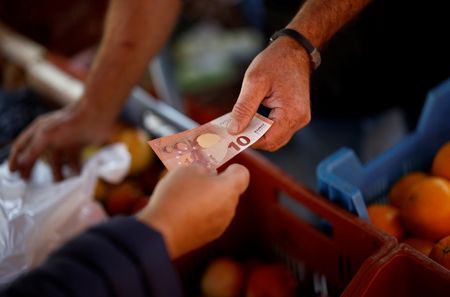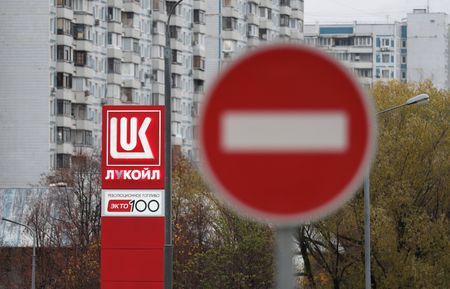By Yoruk Bahceli and Stefano Rebaudo
LONDON (Reuters) -France’s first syndicated government bond sale since a snap election last year unleashed turmoil in its markets saw record demand of 134 billion euros ($138.98 billion) on Tuesday, a lead manager said.
Demand exceeded the 10 billion euros France will raise – also a record – by more than 13 times, adding to a sense of calm in the country’s bonds, which have seen their risk premium over Germany decline slightly in recent days.
Prime Minister Francois Bayrou passed the first test of his new government last week, opening the door to renegotiating a disputed pension reform in an effort to pass a budget left up in the air for months.
“When you think of all the stories (around France), it’s really impressive how they’ve done it,” said Danske Bank chief analyst Jens Peter Soerensen.
In syndications, governments hire banks to sell bonds directly to investors, allowing them to issue larger amounts and reach a wider investor base. Their results are tracked closely to get a sense of the appetite for a country’s debt.
SNAP ELECTIONS ROILED MARKETS
Tuesday’s deal is France’s first syndicated bond sale since May, before President Emmanuel Macron’s snap election call on June 9 rocked the country’s bond market.
But France has continued issuing bonds regularly through auctions, where dealer banks buy the debt then sell it onto investors.
The risk premium France pays for 10-year debt over safer German debt was around 80 bps on Tuesday, down from the highest since 2012 at around 90 bps late last year, when the previous government collapsed as lawmakers opposed its belt-tightening budget.
France joins a flurry of euro zone governments seeing record demand for their January bond sales. Britain also saw record demand for a bond sale on Tuesday.
“Investors are still keen on locking in high yields as they expect the ECB to cut rates in the whole (of) 2025,” said Massimiliano Maxia, senior fixed-income specialist at Allianz Global Investors, adding a recent rise in bond yields had made them “quite appealing”.
Some analysts, however, cautioned against reading too much into the high demand for the bond sales. Hedge funds, which only receive a small share of governments’ debt sales, may be overstating their demand to get better allocations, they said, a long-standing issue in the euro zone bond market.
“It is a challenging landscape for French debt – the volume of issuance is very large by historical standards; the deficit forecasts the government is talking about are unlikely to (be realised) and we still don’t have a budget in place,” said Barclays’s head of euro rates strategy Rohan Khanna.
($1 = 0.9641 euros)
(Reporting by Yoruk Bahceli; Editing by Dhara Ranasinghe and Sharon Singleton)











